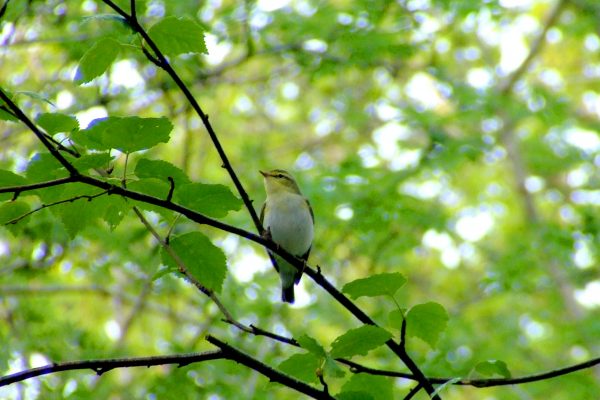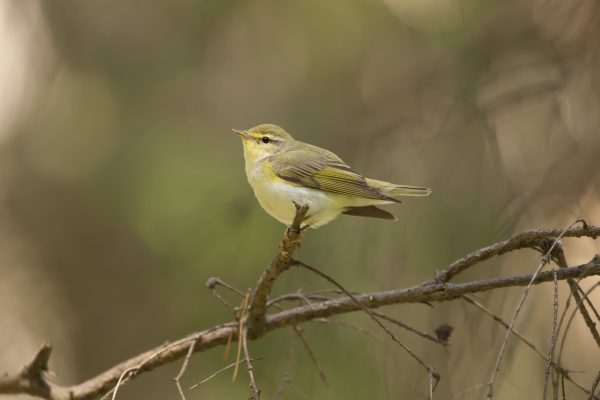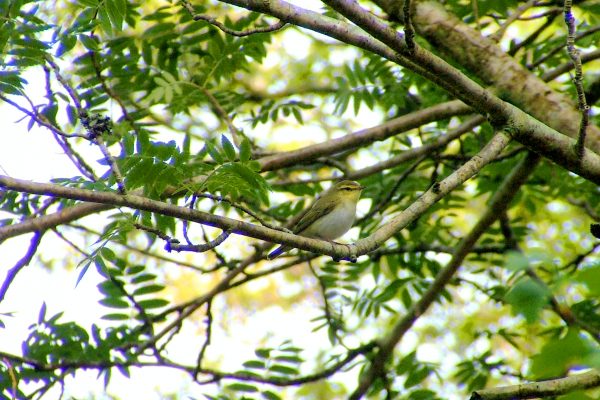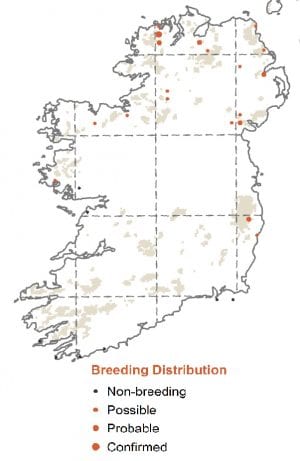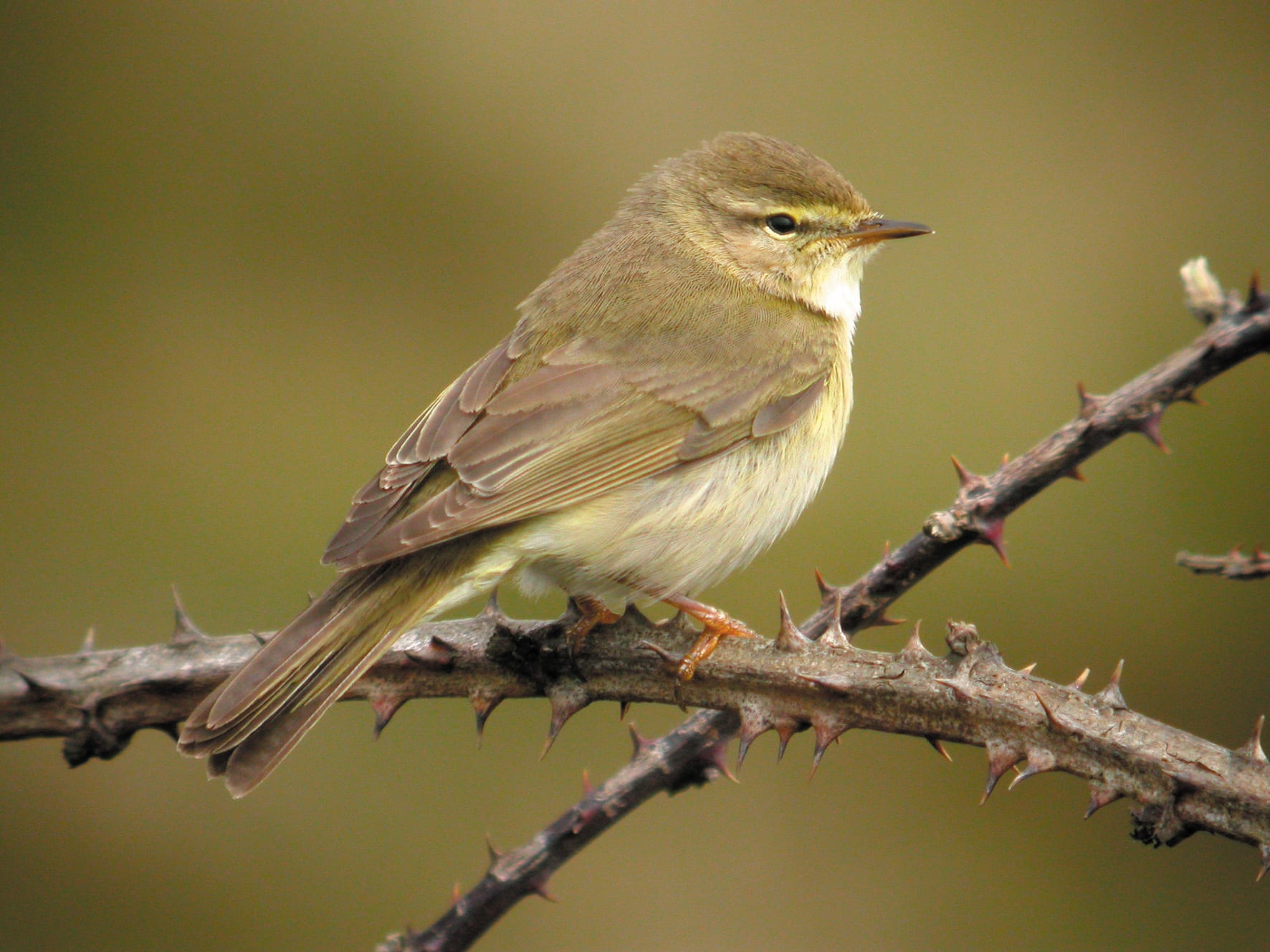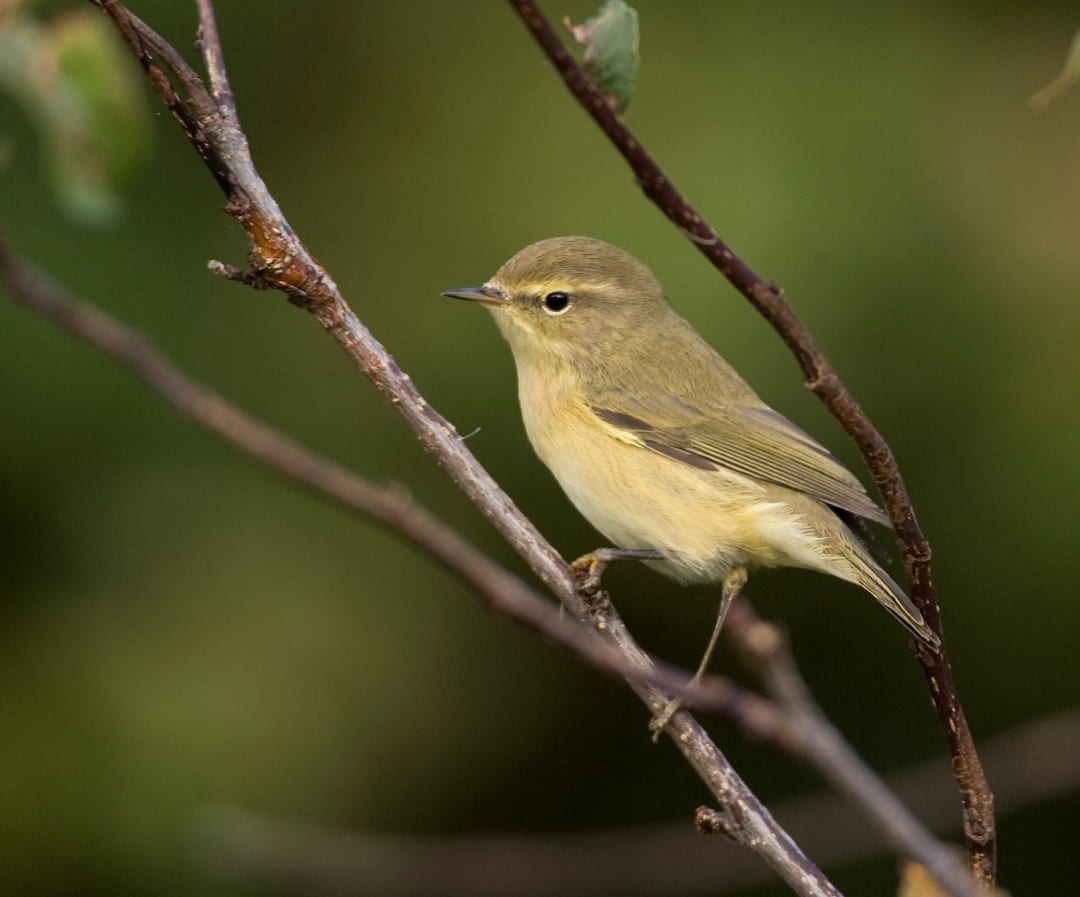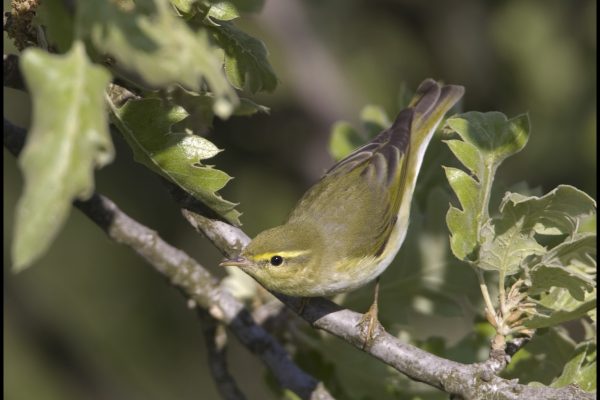
Wood Warbler
| Irish Name: | Ceolaire coille |
| Scientific name: | Phylloscopus sibilatrix |
| Bird Family: | Warblers |
red
Conservation status
Conservation status
Status
Rare summer visitor to decidous woodlands in County Wicklow from mid May to August. Rare passage migrant in spring and autumn.
Identification
About the same size as Willow Warbler and very similar to that species in appearance. Ages and sexes similar. The head, back rump and tail are pale green, with a large yellow supercilium extending to the nape. Also has a dark eyestripe. The throat and face are pale yellow, contrasting to the otherwise pure white breast and belly. The legs are dark brown.
Voice
Most frequently heard is a "tsip". Has two types of the song. The first is an extended series of tsip notes ending in a trill - the sound has been likened to a coin spinning on marble. The other song type is of several slowly repeated "pew" notes, usually descending in scale.
Diet
Feeds mainly on insects and other invertebrates.
Breeding
A few pairs breed in oak forest in County Wicklow. Singing spring birds are almost exclusively seen in old growth, insect-rich woodland. In Continental Europe, also breesd in extensive Scots Pine forests with rich undergrowth, though this habitat does not seem to be used in ireland. Usually nests in holes in the ground.
Wintering
Wood Warblers winter in tropical Africa.

